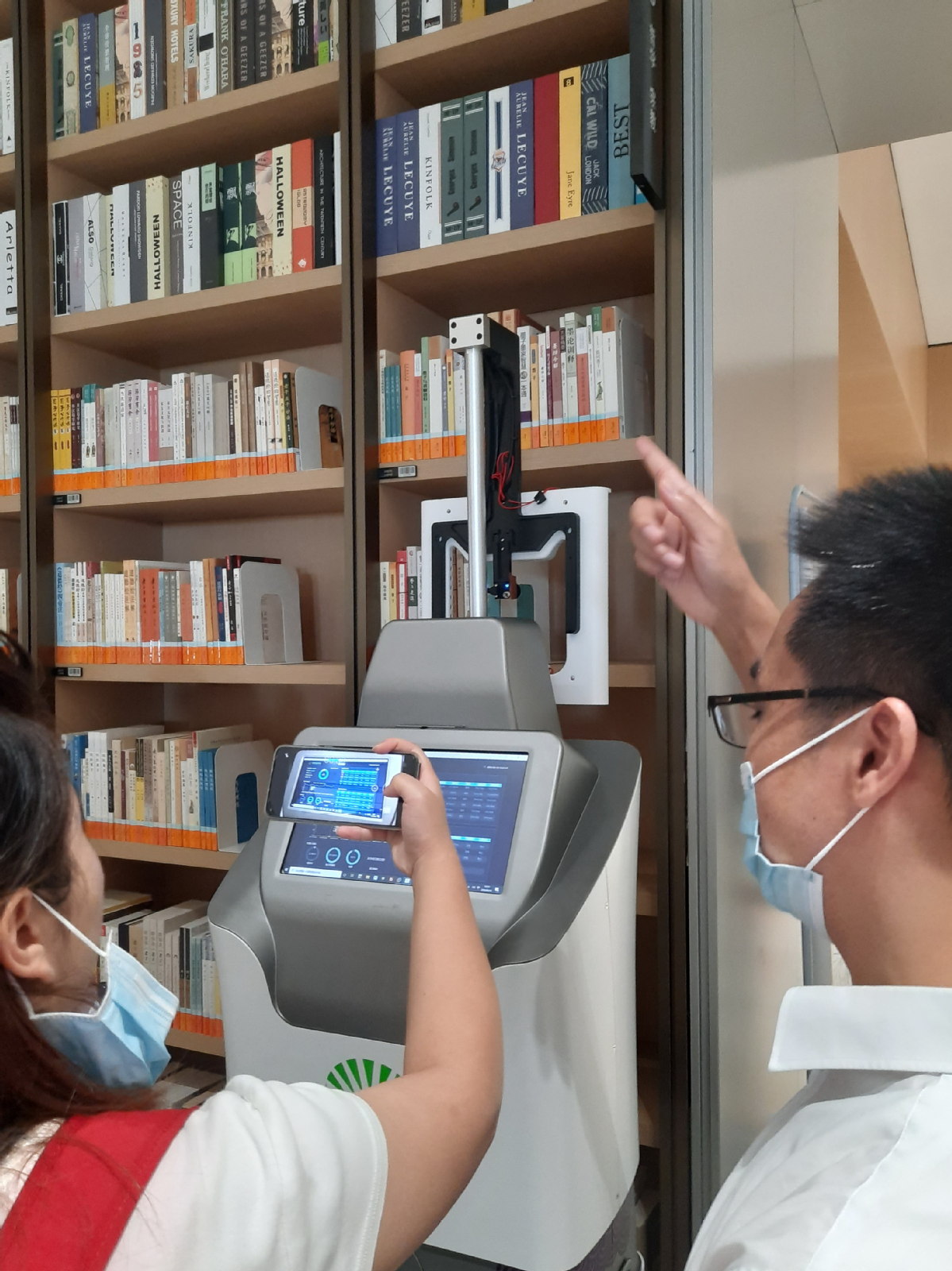Tianjin bolsters eco-city through AI technology


Tian Hua, a 40-year-old Tianjin resident, is delighted to have moved to the Keppel Season Height Community in the city's China-Singapore Tianjin Eco-City in June.
"It's a zone with artificial intelligent technology, smart facial recognition, falling object detection, trash classification, running exercise recording, 5G, robot servants… just to name a few," she said.
"I think our community should be a leading example of the 'moderately prosperous' life, or the xiaokang life."
Tian is a native of Tianjin and moved from downtown to the coastal area, the Binhai New Area, in 2001.
When Tian and her two children want to go to the China-Singapore Friendship Library-the country's first 5G library-they take the Panda Bus, one of the country's first autonomous buses.
"With a simple WeChat scan, a reader could soon locate his favorite book in the library, which has about 600,000 books," said Yan Bingdong, the library's IT head.
The eco-city is teaming up with seven AI companies including Huawei, 360 and iFlytech to build a number of AI-enabled facilities and application sites, according to Yang Yong, deputy head of the administrative committee.
Its AI-enabled infrastructure facilities have covered 60 percent of the eco-city's area.
Teda Street, another section of the Binhai New Area, has provided four AI systems to manage local community services including pandemic prevention, residents' information, traffic and medical care.
For example, one of its recent AI services being offered to older adults living at home without relatives sends an alert to the local central operating center if they haven't gone out for more than two days.
After the pandemic in April, the community arranged the system for 75 such families.
"To date, we have received 17 alerts, and community volunteers soon visited them," said Wu Peng, the deputy head of the community's office.
Liu Qingfeng, president of iFlytech, told China Daily that AI companies in China envision getting more involved in civil infrastructure, education and civil service, including elderly service, all of which are key for the future of Chinese AI companies.
Gong Ke, president-elect of the World Federation of Engineering Organizations, agreed.
"On the path toward a moderately prosperous society, the AI industry should not create gaps among the affluent and the poverty-stricken areas amid its rapid growth," Gong said.
Tianjin is a pioneer in AI city construction and has become a leader in China's AI development. It is shaping up to become a hightech hub and has rolled out a series of supportive policies to develop the AI sector.
In December 2018, the city unveiled a three-year plan to boost the innovative development of seven AI-related industrial chains, including the independent and controllable information system, intelligent security, big data, advanced communications, intelligent connected vehicles, industrial robots and intelligent terminals.
It has also set up a special 10-billion-yuan ($1.46 billion) fund for intelligent manufacturing and a 100-billion-yuan industry fund for the new generation of AI.




































